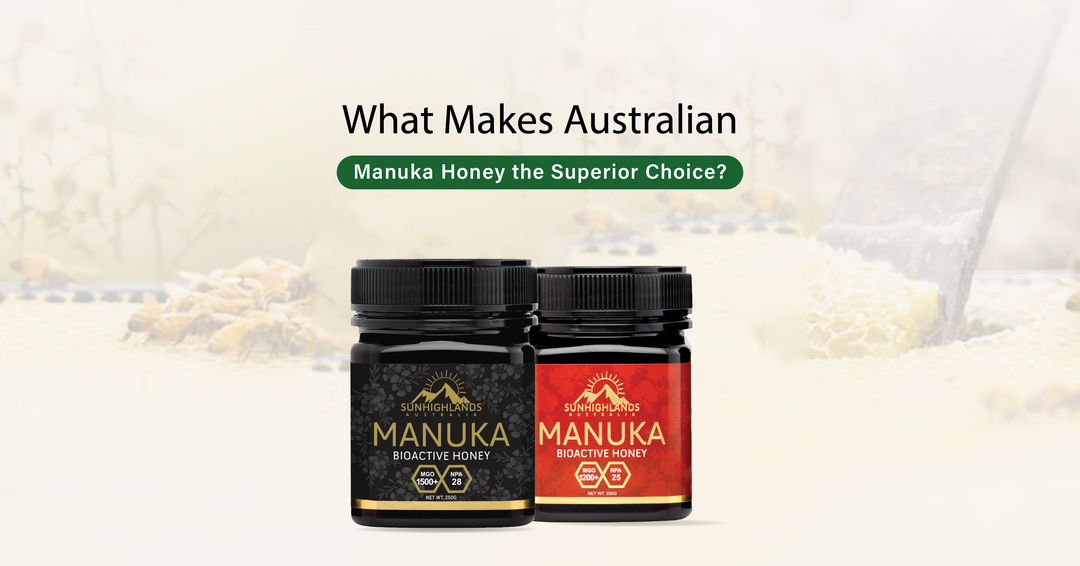Is Manuka Honey Safe During Pregnancy? Discover the Benefits and Myths!

So, Is Manuka Honey Useful During Pregnancy?
The answer to this question is YES, and here's why.
Pregnancy is one of the most precious yet challenging times in a mother’s life. Expecting mothers are always on the lookout for safe and natural ways to support the development of both their bodies and the tiny little ones growing in their wombs. While the benefits of honey are well-known, there’s often a question that arises: Is honey safe for the baby during pregnancy?
Recommendations from Healthcare Providers
Most healthcare providers recommend not introducing honey to infants before the age of one year due to the risk of botulism from bacterial spores called clostridium botulinum. This leads to concerns about whether Manuka honey is safe during pregnancy. Fortunately, consuming Manuka honey while pregnant is generally considered safe because the mother’s immune system is strong enough to fight off these bacteria, preventing them from harming the baby.
According to the National Health Services (NHS) in the UK, Manuka honey is safe during pregnancy. Similarly, the US Food and Drug Administration (FDA) does not specifically advise against it.
Why Choose Manuka Honey?
Manuka honey isn’t just safe during pregnancy; it’s also incredibly beneficial. Here’s why:
- 100% pure
- Rich in essential nutrients needed during pregnancy:
- Iron
- Zinc
- Potassium
- Phosphorus
- Vitamin B
Consuming Pure and Natural Manuka Honey
The quality of Manuka honey is determined by the levels of methylglyoxal (MGO), a compound responsible for its antibacterial and antimicrobial properties. The higher the MGO level, the stronger the antibacterial effects.
Benefits of Manuka Honey During Pregnancy
Manuka honey’s unique compound, methylglyoxal (MGO), releases hydrogen peroxide, making it effective against bacteria and microbes. Here are some benefits:
The antibacterial properties of Manuka honey protect against diseases and infections, which is crucial during pregnancy when the immune system is often weaker.
Manuka honey’s viscosity provides a soothing layer around the throat, alleviating irritation and coughing. A mix of Manuka honey with ginger tea or green tea can be particularly effective.
Manuka honey can help with gastric discomfort and heartburn, common during pregnancy. Regular use may also combat helicobacter pylori bacteria, which cause duodenal ulcers.
Rich in vitamins and minerals, Manuka honey provides an excellent source of energy for pregnant women.
Applying Manuka honey cream can help reduce irritation and itching from stretching skin, potentially preventing stretch marks.
Regular use keeps the skin hydrated and glowing.
Manuka honey contains chrysin and gallic acid, which help reduce stress and promote better sleep.
Circumstances When Manuka Honey Should Be Avoided
Pregnant women with Crohn’s disease are more susceptible to bacterial infections, including botulism.
While rare, there’s a small risk of contamination. Pregnant women should take precautions to ensure their Manuka honey is pure and uncontaminated.
Monitor sugar levels and consume Manuka honey in moderation to avoid the risk of gestational diabetes.
Conclusion
Manuka honey is not only safe during pregnancy but also highly beneficial. It boosts the immune system, provides energy, improves sleep quality, soothes sore throats, enhances digestive health, and keeps the skin hydrated. It’s a rich source of essential vitamins and minerals needed for the development of the fetus, making it a great addition to a pregnant mother’s diet.
FAQs
1. How much Manuka honey can a pregnant mother consume daily?
One spoonful of Manuka honey is safe for pregnant women on a daily basis.
2. Can infants have Manuka honey?
It is advisable not to give Manuka honey to infants before the age of one to eliminate the risk of infant botulism.
3. Can the spores of clostridium botulinum pass through the placenta?
No, the immune system of pregnant women is strong enough to kill the spores of clostridium botulinum, preventing their entry into the bloodstream and the placenta.





